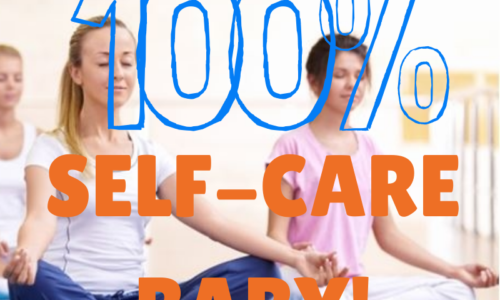
Creating Healthy Boundaries
Imagine you KNOW that you’re the most important person in your life….
You wake up with energy and can’t wait to get going!
You look in the mirror and love what you see!
You make time to calm your mind, move your body and feed your soul – every day.
You love yourself – and it shows with every thought you think, word you speak, and food choice you make.
If you don’t immediately and whole-heartedly believe YOU are the most worthy and deserving person in your life, then time to reassess why, and where the bulk of your energy is being invested.
Many people, women especially, feel selfish at putting themselves first.
We worry what will happen if we don’t get everything done, as if the world would fall apart.
We feel guilty for wanting to say no, even when it places so much overwhelm on our shoulders.
We think we can’t stop “doing” for fear of disappointing others.
Our expectations to be perfect, keep it together and not let anyone down often stems from underlying limiting beliefs, learned examples, and lack of self-worth: I’m not good enough or smart enough, If I don’t do this they won’t like me, I can’t be happy until I lose weight…
[Tweet “No-one expects you to be perfect except yourself. Learning to accept who you are (even though you may like to make changes) opens the way for self-respect.”]Learning to accept who you are (even though you may like to make changes) opens the way for self-respect.
Self-respect equates to valuing who you are and what you have to offer the world.
This deserves to be protected in the form of personal self-care boundaries.
Examples might be:
- Saying NO when you really want to say no
- Spending a little time alone each day to breathe and relax
- Meditating to learn how to let go of unnecessary things
- Stepping back from doing to enjoy more relaxing activities
- Creating an evening routine to support restful sleep
- Setting time aside to discuss your fears and problem solve them
- Make time for your favourite activities and hobbies
- Choose foods that energise, replenish and satisfy you
- Eat slowly, mindfully and enjoy nourishing your body
- Listen to your body over ignoring hunger or bladder signals
A great resource for setting personal boundaries can be found in the book, Boundaries Where You End And I Begin: How To Recognize And Set Healthy Boundaries
Below is a modified list to help you get started:
• When you identify the need to set a boundary, do it clearly, calmly, firmly, respectfully, and in as few words as possible. Do not justify, get angry, or apologize for the boundary you are setting.
• You are not responsible for the other person’s reaction to the boundary you are setting. You are only responsible for clearly and respectfully communicating your boundary. If it upsets the other person, be confident knowing it is not your problem. Some people, especially those accustomed to controlling, abusing, or manipulating you, might test you. Plan on it, expect it, but remain firm. Remember, your behaviour must match the boundaries you are setting. You cannot successfully establish a clear boundary if you send mixed messages by apologizing.
• At first, you will probably feel selfish, guilty, or embarrassed when you set a boundary. Do it anyway and tell yourself you have a right to protect yourself. Setting boundaries takes practice and determination. Don’t let anxiety or low self-esteem prevent you from taking care of yourself.
• When you feel anger or resentment or find yourself whining or complaining, you probably need to set a boundary. Listen to yourself, determine what you need to do or say, then communicate assertively.
• Learning to set healthy boundaries takes time. It is a process. Set them in your own time frame, not when someone else tells you.
• Develop a support system of people who respect your right to set boundaries. Eliminate toxic people from your life—those who want to manipulate, abuse, and control you.
Establishing healthy boundaries and enforcing them, builds self-worth and confidence—all very sexy qualities!
Next, consider your lifestyle.
It’s important to know which areas may need some attention in improving your overall health and wellbeing as part of your daily self-care.
Look at all the areas of your life: family, work, fitness, stress, leisure, creativity and purpose/passions.
What are you doing to help yourself feel nourished in each area to assist in taking the best care of yourself?
- Are you managing your stress adequately?
- Are you making time to connect with friends and family?
- Are you enjoying time for your favourite sports or hobbies?
- Are you talking through your worries and actively problem-solving?
- Are you attending to your own needs with time for reflection?
- Are you getting enough quality rest and regular movement?
- Are you including protein rich foods and healthy fats at every meal?
- Are you challenging yourself to grow and develop?
Making self-care a priority takes practice and awareness, but in the end, we are each responsible for respecting and valuing ourselves and paving the way for how others treat us.
[Tweet “It’s healthy to put ourselves first for a change so we have more of our authentic selves to give.”]Self-Care is non-negotiable. It’s essential and it’s your responsibility.
Love

Rapid Transformational Coach, Counsellor and Therapist
Freedom and Recovery from your Emotional, Weight & Eating Issues
![]()
Viki Thondley is a Rapid Transformational Therapist & Coach, Holistic Counsellor & Meditation Therapist specialising in self-worth, stress, mind-body connection, subconscious reprogramming, depression/anxiety, body-image & eating disorder recovery. She is Founder/Director of the MindBodyFood Institute & author of the Holistic Life Coach & Mind-Body Practitioner certification course, plus several coaching & whole food books.

